22 Best Protein Rich Foods for Weight Loss

Going on a protein rich diet is a proven way to lose weight. However, individuals should keep in mind their calorie intake before selecting protein rich food for weight loss. This is why consulting a relevant doctor before finalising the diet is suggested, especially for people suffering from liver or kidney diseases.
Regardless, this guide covers some of the best protein rich foods for weight loss for your convenience. Take a look.

Table of Contents

Top Sources of Protein for Weight Loss
It is essential to pick food sources that are rich in proteins but low in saturated fat and calories. Some key sources of protein include:
- Seafood
- Low-fat dairy products
- Eggs
- Lean meats
- Soy
- Nuts and seeds
22 Protein Rich Foods for Weight Loss
To achieve your weight loss goals, you must include protein rich foods in your diet. These foods help in various ways, such as promoting fullness, preventing muscle wasting, and increasing metabolism. Some of the protein rich veg and non-veg foods for weight loss are:
1. Salmon

While regular salmon contains 20.4g of protein per 100g, Atlantic salmon offers nearly 23.8g per 100g fillet. Being a fatty fish, salmon contains high amounts of omega-3 fatty acids. Further, salmon also contains vitamins A & D and minerals like calcium, among others in abundance.
Nutritional Value (85 grams, cooked)
- Calories: 175
- Protein: 19g
- Fat: 10g
- Omega-3 Fatty Acids: 1.5g
How Salmon Helps Lose Weight?
- Proteins help build muscle tissues after exercises, while omega-3 fatty acids may decrease inflammation and raise metabolic rates.
- Protein, as well as healthy fats, increase your sense of satiation; hence it helps regulate food intake.
2. Crab

Crab is also an excellent protein rich food source for weight loss. Both white and brown meat are rich in omega-3 oils, offering around 19g of protein per 100g, and are also low in fat. Further, it also contains nearly 18.92g of omega-3 fatty acid per every 100g of meat.
Nutritional Value (85 grams, cooked)
- Calories: 98
- Protein: 20g
- Fat: 1g
- Omega-3 Fatty Acids: 0.3g
How Crab Helps Lose Weight?
- Crabs contain few calories, which enable you to feel full without adding too much weight to your body by supporting muscle growth.
- Its fat content is low, which makes it a good choice for dieting individuals.
3. Prawn
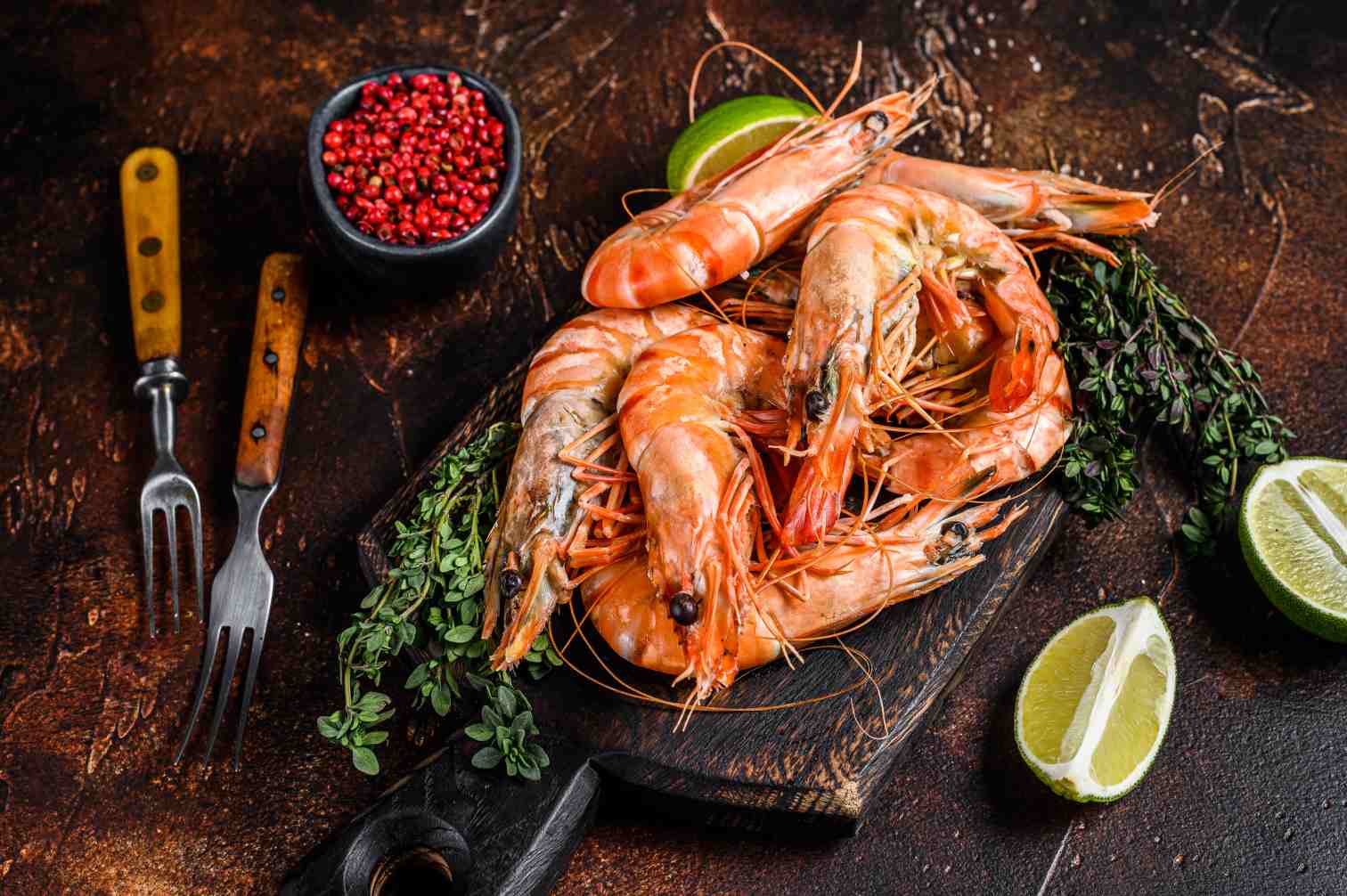
Prawns are a great source of protein, are rich in omega-3 fatty acids and vitamin B12, and are healthy for the heart and nervous system. Found extensively in several Indian states, prawns contain around 17.6g of protein per 100g serving.
Nutritional Value (85 grams, cooked)
- Calories: 84
- Protein: 18g
- Fat: 1g
How Prawn Helps Lose Weight?
- Prawns have many proteins but fewer calories because they are very filling without having excess numbers of them.
- Additionally, they offer selenium and vitamin B12, among other nutrients.
4. Cottage Cheese
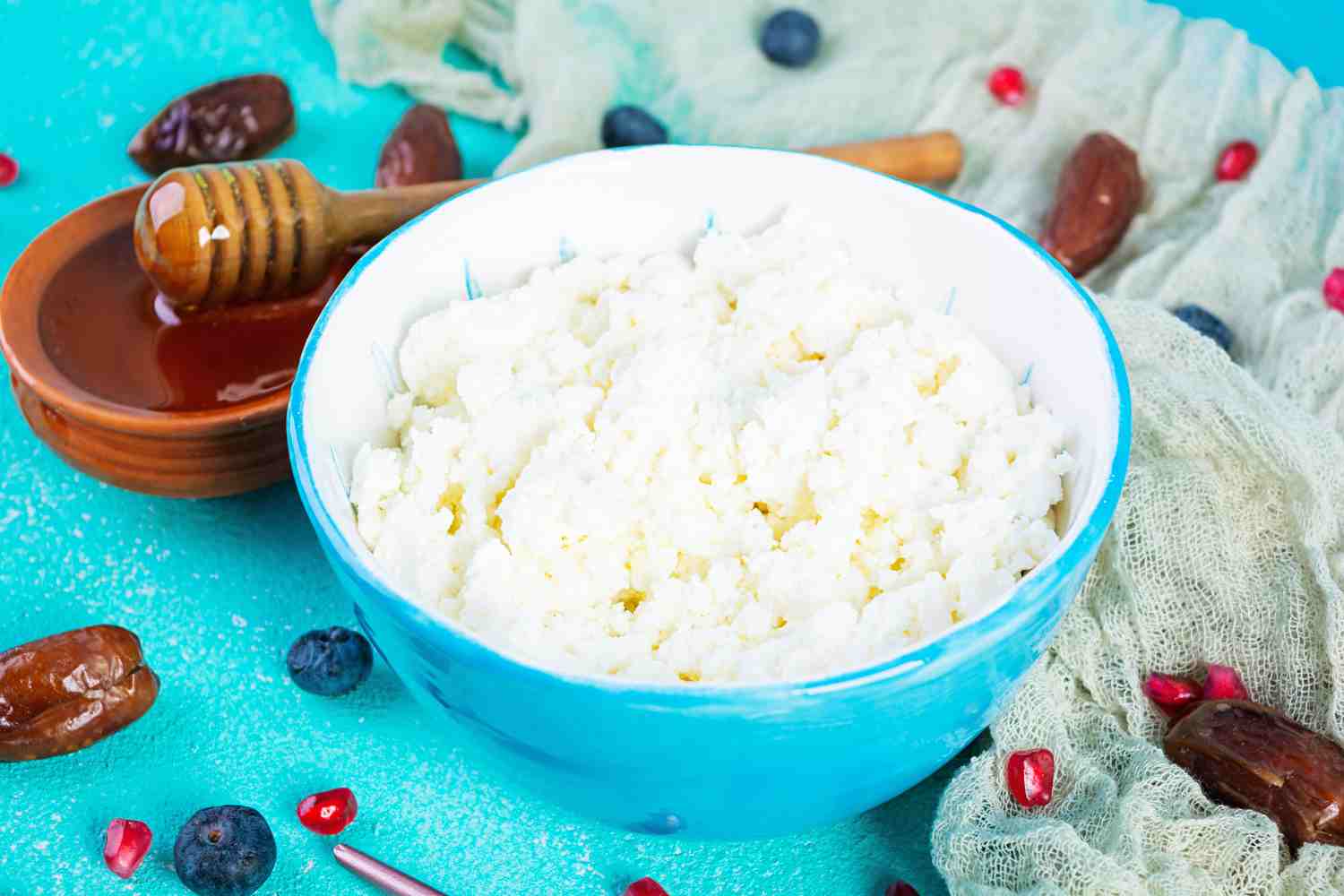
Cottage cheese or paneer is a protein rich veg food for weight loss. It has high casein content and also contains calcium that triggers an accelerated fat-burning process. 100g of cottage cheese approximately contains 23g of protein.
Nutritional Value (1 cup, low-fat)
- Calories: 206
- Protein: 28g
- Carbohydrates: 6g
- Calcium: 138mg
How does Cottage Cheese help Lose Weight?
- It has a high content of proteins that can keep you full and support the maintenance of muscles.
- It is low in calories. Hence, it can be used as a great snack or meal complement.
5. Milk

Cow milk is an excellent source of protein, along with minerals and only 1% fat. Consuming 100ml of cow milk can offer nearly 3.5g of protein.
Nutritional Value (1 cup, low-fat)
- Calories: 102
- Protein: 8g
- Fat: 2.4g
- Calcium: 300mg
How Milk Helps Lose Weight?
- Milk is an ideal source of protein, which aids in muscle building and maintaining satiety.
- Calcium for healthy bones and overall nutrient profile for metabolic health.
6. Plain Low-fat Yoghurt
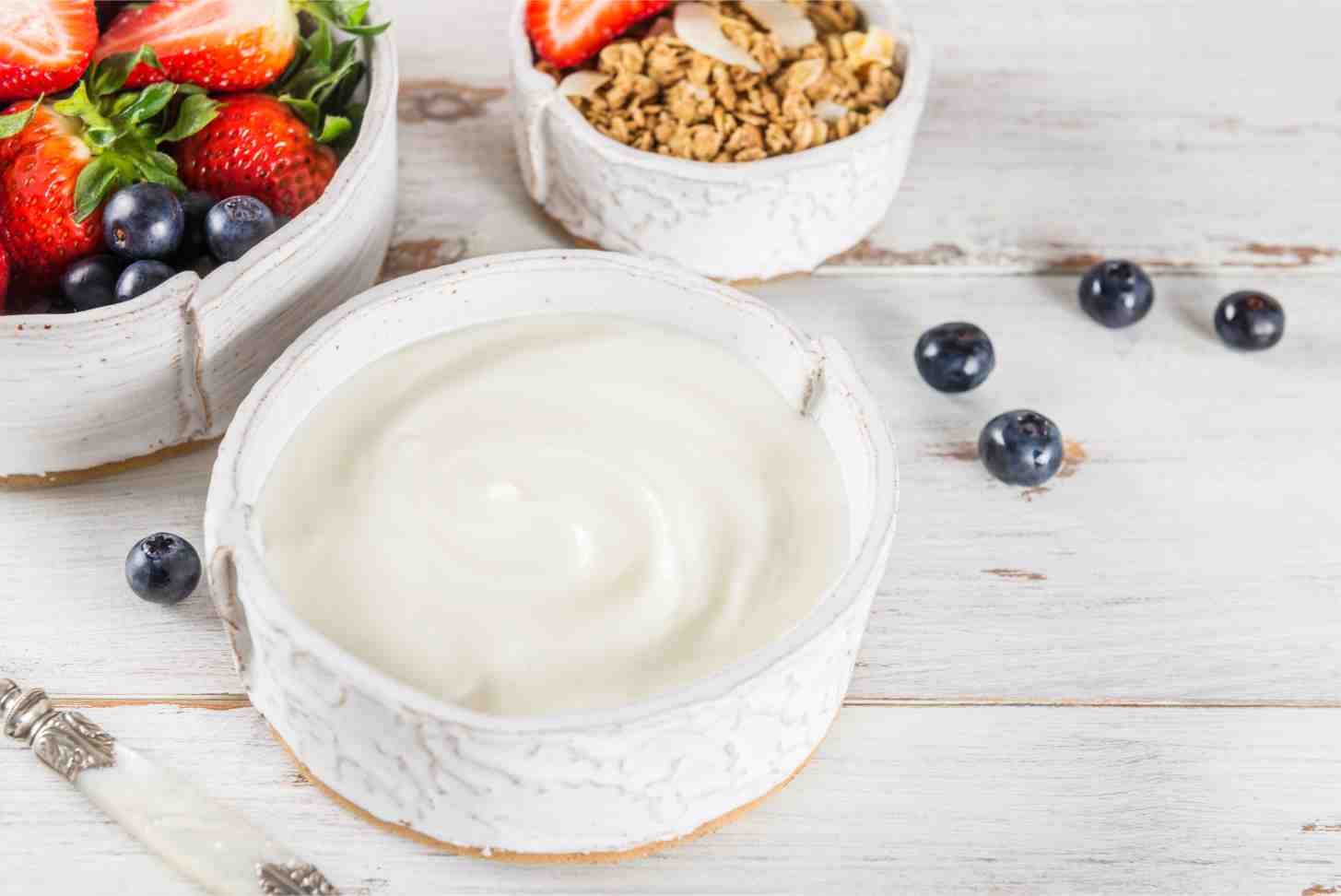
Plain low-fat yoghurt, also known as Greek yoghurt, is one of the best lean protein foods for weight loss. It offers nearly 10g of protein in a 100g pot. It is recommended to consume it without sugar if it is for weight loss purposes. However, mixing it up with some fruits or seeds can also be suitable.
Nutritional Value (1 cup)
- Calories: 154
- Protein: 13g
- Fat: 3.8g
- Calcium: 450mg
How Low-Fat Yoghurt Helps Lose Weight?
- Low-fat yoghurt helps to reduce calorie intake compared to full-fat versions while still providing essential nutrients.
- It allows for portion-controlled snacks in a weight-loss plan.
7. Almonds

Although nuts are high in calories, they can offer high amounts of protein with controlled consumption of dry roasted and raw almonds. This is mainly because most of its fat is monounsaturated. Every ounce of almonds contains around 6g of protein, 3g of fibre and 6g of carbohydrate.
Nutritional Value (28 grams, about 23 almonds)
- Calories: 164
- Protein: 6g
- Carbohydrates: 6g
- Fibre: 3.5g
- Iron: 1.1mg
How Almonds Help Lose Weight?
- Almonds are an excellent source of proteins, fibre, and healthy fats that help control hunger and keep you full.
- They also provide necessary nutrients for overall wellness.
8. Eggs

Eggs are a great source of protein, healthy fats and other nutrients. Eating eggs can also prevent people from overeating, helping them cut down on other consumables.
A single egg packs a whopping 6-8g of protein with only 70 calories and sufficient vitamin B1, omega-3 fatty acids, and magnesium, making it one of the best protein food sources for weight loss.
Nutritional Value (1 large egg)
- Calories: 72
- Protein: 6g
- Fat: 5g
- Vitamin D: 1mcg
How Eggs Help Lose Weight?
- Eggs are a good example; they are low in calories but rich in protein, which helps promote satiety and reduce calorie intake.
- Moreover, they contain essential amino acids to maintain muscle mass.
9. Pork

Pork is also one of the protein rich foods for weight loss when consumed in the right way. For instance, pork tenderloin has less fat than skinless chicken breast, according to a study by The University of Wisconsin.
Each 100g of lean pork serving contains nearly 25g of protein. In fact, a study in the Nutrients journal found that overweight people lost weight without any reduction in muscle mass after maintaining a lean pork-rich diet.
Nutritional Value (85 grams, cooked)
- Calories: 206
- Protein: 22g
- Fat: 12g
- Iron: 0.8mg
How Pork Helps Lose Weight?
- Lean pork is rich in protein required for muscle growth and repair.
- Additionally, the nutrient profile of lean pork supports a balanced diet and can aid weight loss when eaten occasionally.
10. Beef

Beef consumption for weight loss depends on the diet of the individual. The protein intake will vary accordingly. However, beef offers high amounts of protein per serving – ranging between 25-28g every 100g. Alongside, beef also contains calories and other nutrients, including vitamin B12.
Nutritional Value (85 grams, cooked)
- Calories: 180
- Protein: 24g
- Fat: 9g
- Iron: 2.1mg
How Beef Helps Lose Weight?
- Lean beef is high in proteins that assist with developing muscles, which boosts metabolism and may eventually help burn more calories.
- It also offers iron plus many other crucial minerals.
11. Chicken

Chicken is a lean protein source, with most calories coming from protein when served without skin. Every 100g of chicken contains nearly 27g of protein, making it another popular protein rich food source for weight loss.
Nutritional Value (85 grams, cooked)
- Calories: 140
- Protein: 26g
- Fat: 3g
How Chicken Helps Lose Weight?
- The breast part of chicken has less fat content yet contains much protein, which makes it satisfying and ensures no muscle breakdown.
- For those trying to lose weight, it’s a great choice as it has very few calories.
12. Oats

Oat is widely available and popular in India, containing around 17g of protein in every 100g. Further, oats are also a source of carbohydrates and several other minerals and vitamins. However, experts recommend avoiding prepared oatmeal as it contains more added sugar.
Nutritional Value (1 cup, cooked)
- Calories: 154
- Protein: 6g
- Carbohydrates: 27g
- Fibre: 4g
How Oats Help Lose Weight?
- Conversely, oats are packed with soluble fibres and proteins, making them ideal for curbing appetite.
- It also helps to regulate blood sugar levels steadily due to their slow digestion rate.
13. Sun-dried Tomatoes
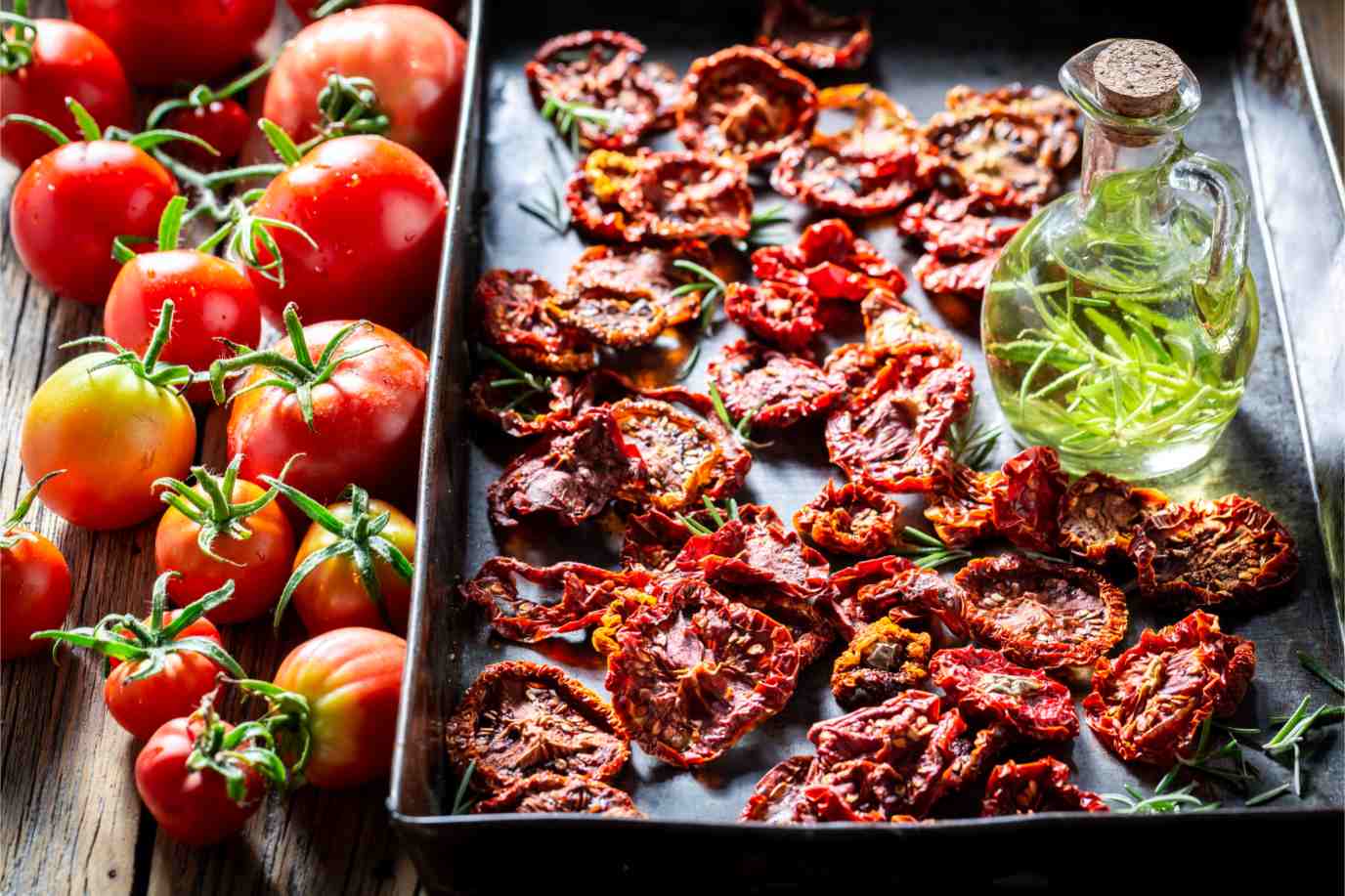
Sun-dried tomatoes are widely available and are a common ingredient in several popular dishes in India. Not only are tomatoes a source of protein, but they also contain several other nutrients and fibre. Every 100g of sun-dried tomatoes offers nearly 14g of protein.
Nutritional Value (1 cup)
- Calories: 139
- Protein: 8g
- Carbohydrates: 24g
- Fibre: 7g
- Iron: 2.5mg
How Dried Tomatoes Help Lose Weight?
- Sun-dried tomatoes are highly fibrous, and they have very few calories
- It is one of the best options when one needs to feel satisfied without taking so many calories with food.
14. Guava

Guava is among the most nutritious fruits in several parts of India. A cup of guava contains approximately 4.5g of protein. Further, guava is also rich in vitamin C, with one serving offering nearly 4 times the daily requirement.
Nutritional Value (1 cup, raw)
- Calories: 112
- Protein: 4g
- Carbohydrates: 24g
- Fibre: 9g
- Vitamin C: 377mg
How Guava Help Lose Weight?
- Guava has high fibre but low calories; hence, it helps fill one up and promotes healthy digestion.
- Additionally, guavas have plenty of vitamin C for general wellness.
15. Peas

Peas are easy to find in India and inexpensive, aside from their widespread availability. They are high in protein, fibre and other nutrients. You will get around 5g of protein from every 100g of peas.
Nutritional Value (150 grams, cooked)
- Calories: 118
- Protein: 8g
- Carbohydrates: 21g
- Fibre: 7g
- Iron: 2.5mg
How Peas Help Lose Weight?
- Peas contain a lot of fibre and protein, increasing the feeling of fullness while reducing total calorie intake.
- Their nutrient rich composition supports stable energy levels.
16. Pistachios

Pistachios pack high amounts of protein with low-calorie content. Moreover, it also offers various vitamins and nutrients, along with high levels of vitamin B6. One ounce of pistachio packs in nearly 6g of protein, or every 100g of pistachio will have nearly 20-22g of protein.
Nutritional Value (28 grams)
- Calories: 159
- Protein: 6g
- Carbohydrates: 8g
- Fibre: 3g
- Iron: 1.1mg
How Pistachios Help Lose Weight?
- Pistachios are high in protein, fibre, and heart-friendly fats, which reduce hunger pangs and keep you feeling full.
- They make a good snack because they are low in calories.
17. Beans

Beans contain vitamins, antioxidants, minerals, and adequate protein serving. Moreover, since they digest slowly, beans also help you reduce frequent snacking and effectively assist in weight loss. The protein payout per 1/2 cup of beans is around 7-10g.
Nutritional Value (170 grams, cooked)
- Calories: 225
- Protein: 15g
- Carbohydrates: 40g
- Fibre: 15g
- Iron: 3.6mg
How Beans Help Lose Weight?
- They are a great source of proteins and fibre where one is fuller for a long duration, thus preventing overeating temptations.
- Furthermore, their complex carbohydrates provide steady energy and help to control blood sugar levels.
18. Lentils

Lentils, commonly known as ‘dal’ in India, is a staple in almost all corners of the nation. All lentils, including moong, arhar, etc., are rich in protein, fibre, and other essential minerals. On average, every 100g or 1/2 cup of cooked lentils contains around 9g of protein.
Nutritional Value (1 cup, cooked)
- Calories: 230
- Protein: 18g
- Carbohydrates: 39g
- Fibre: 16g
- Iron: 6.6mg
How Lentils Help Lose Weight?
- They are rich in protein and fibre that increase satiety while reducing appetite.
- They contain complex carbohydrates that provide stable energy, reducing cravings and overconsumption.
19. Quinoa

Quinoa is a versatile grain characterised by its nutty taste and high nutritional content. It contains all nine essential amino acids, making it a complete protein and an excellent choice for vegetarians and vegans.
Nutritional Value (1 cup, cooked)
- Calories: 222
- Protein: 8g
- Carbohydrates: 39g
- Fibre: 5g
- Iron: 2.8mg
How does Quinoa Help Lose Weight?
- High levels of proteins and fibres in quinoa facilitate satiety, thus reducing total calorie intake.
- Helps control blood sugar levels much longer, hence cutting out cravings.
20. Tofu

Tofu, also known as bean curd, is a popular plant-based protein made from soybeans that can be easily incorporated into many different dishes.
Nutritional Value (1/2 cup, cooked)
- Calories: 94
- Protein: 10g
- Carbohydrates: 2g
- Fibre: 1g
- Iron: 1.8mg
How does Tofu Help Lose Weight?
- Retains lean tissues when slimming down and increases feelings of fullness.
- It provides a low-calorie, nutrient-dense alternative to create the negative energy balance necessary for successful long-term weight management.
21. Chickpeas
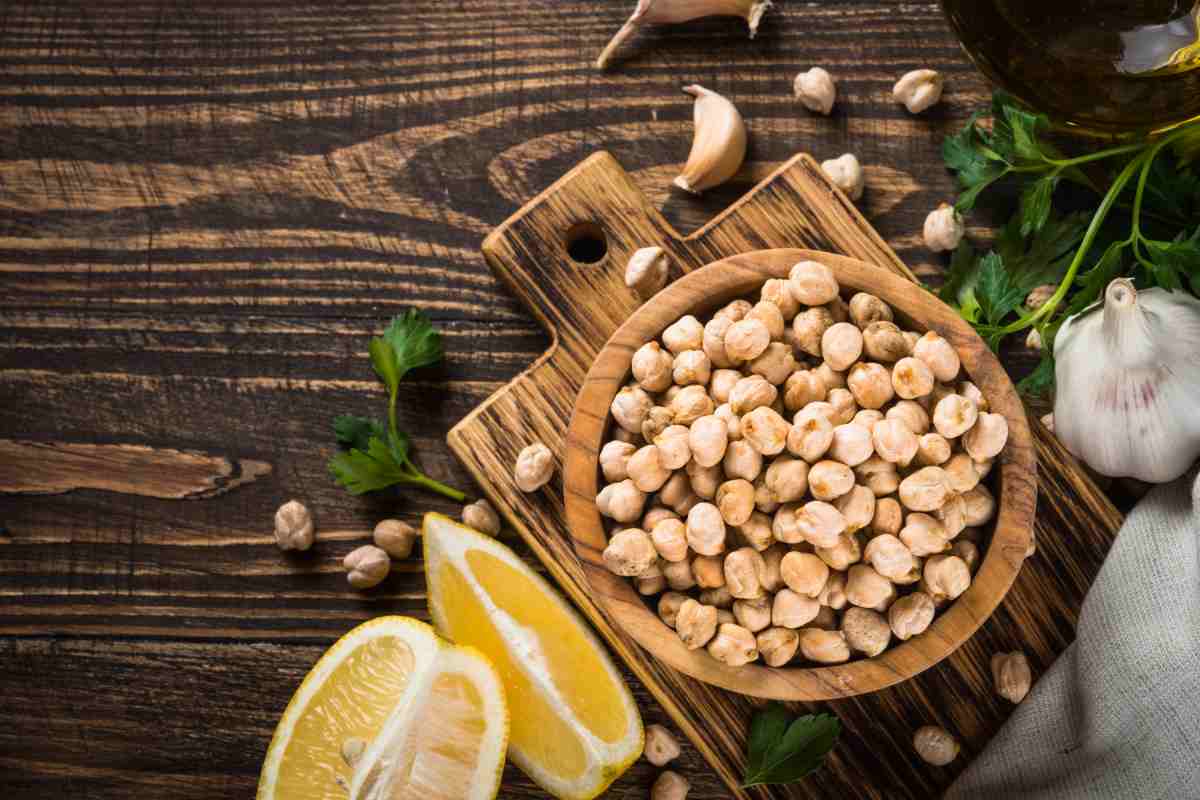
Chickpeas, or garbanzo beans, are a popular food in various parts of the world. They taste nutty and contain plenty of protein and fibre.
Nutritional Value (1 cup, cooked)
- Calories: 269
- Protein: 15g
- Carbohydrates: 45g
- Fibre: 12g
- Iron: 4.7mg
How Chickpea Helps Lose Weight?
- Induces feelings of fullness lasting for long periods, hence reducing calorie intake generally.
- It controls blood sugar levels, lowering the probability of overeating.
22. Chia Seeds

These are small black seeds that come from the Salvia hispanica plant. They are highly nutritious and can take up to twelve times their weight in water, thus forming a gelatinous texture when soaked.
Nutritional Value (28 grams)
- Calories: 137
- Protein: 4g
- Carbohydrates: 12g
- Fibre: 11g
- Iron: 2mg
How Chia Seed Helps Lose Weight?
- The chia seed’s soluble fibres absorb water and swell in your stomach, causing fullness.
- It helps in reducing inflammation, which might contribute to heart disease.
Tips on High Protein Diet for Weight Loss
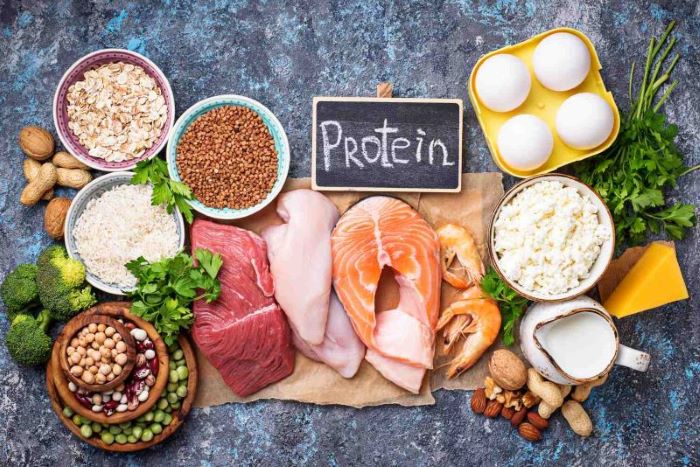
Protein dieting may be approached as a strategic action to burn fats and maintain muscle. However, effective weight loss entails more than just increasing protein intake. Below are practical tips for going through a protein rich diet towards achieving weight loss:
- Choose Leaner Sources of Protein: Look for lean meats like turkey, chicken breast, low-fat dairy, and legumes, including beans, lentils, and quinoa. These choices are generally lower in saturated fat and calories.
- Have Proteins in All Meals: To normalise blood sugar levels, reduce cravings, and promote satiety, include a protein source in every meal and snack possible. This can help prevent overeating while providing all-around calorie control.
- Go for Whole Foods Instead: Opt for whole, unprocessed foods when you can. Processed meat products and protein bars are high in unhealthy fats, sugars or additives that might hinder weight loss progress.
- Watch your Portions: Portion control is vital despite protein being critical to weight loss. Watch portion sizes to avoid consuming more calories than required, even from protein rich foods, which may lead to weight gain in the long run.
- Pair with Vegetables and Whole Grains: Match protein-laden foods with vegetables rich in fibre and whole grains such as brown rice, quinoa, and oats. This mix enhances satiety, facilitates digestion, and furnishes the body with essential materials.
- Remain Hydrated: Good health and weight loss require sufficient hydration. Drinking water at different intervals of the day helps to prevent overeating and supports metabolism, which results in an efficient digestive system.
- Avoid Excessive Sugar Sources and Processed Foods: It is advisable to limit the intake of sugar-coated snacks or drinks alongside processed foods because they may act as a barrier for those focusing on eating protein only.
- Compliment with Exercise: A protein rich diet should be complemented by regular physical activity, especially muscle training, to enhance muscle development while reducing fat content.
- Organise and Ready Meals Ahead: By planning meals, you can make healthier selections and avoid impromptu eating habits when it’s time to feed. Prepare satisfying dishes, allowing you to concentrate on shedding some pounds.
Side Effects and Impact of Protein-rich Food for Weight Loss
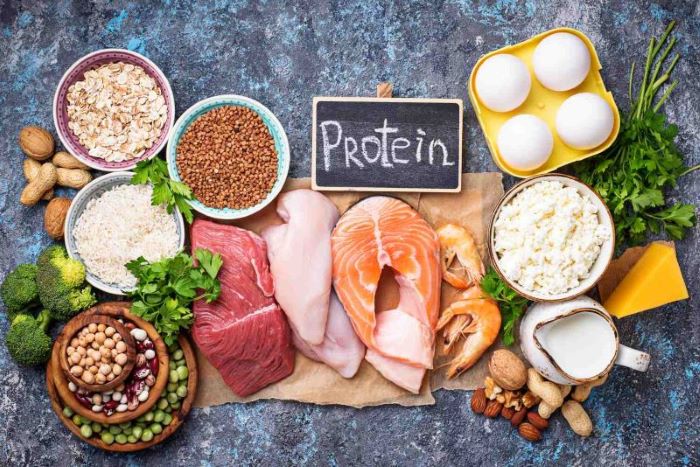
Although proteins serve diverse benefits to our health, there are also definitive side effects of protein-rich food for weight loss. These are:
Bad Breath
Not including adequate carbohydrates in your diet while increasing the protein content can lead to bad breath. This is mainly because the human body adopts a metabolic state known as ketosis. This produces chemicals that emit an unpleasant odour. Drinking lots of water and brushing can counter the smell.
Dehydration
Upping the protein intake can also result in a fall in the hydration level, increasing urination frequency and can also often make one feel thirsty. Drinking an increased amount of water is imperative in such cases.
Constipation
Usually, high-protein diets with restricted carbohydrate intake are low in fibre. This results in constipation. One can increase his/her water and fibre consumption in such cases. Tracking bowel movements is also recommended.
Kidney Damage
Excess nitrogen in amino acids can damage kidneys in people already suffering from kidney disease. Damaged or failing kidneys are unable to filter the nitrogen and other wastes and aggravating the condition. For such cases, you must practice weight loss, as well as have health insurance that covers the expenses incurred for the treatment.
Heart Diseases
Eating excess amounts of red meat and full-fat dairy foods as a part of consuming protein-rich foods for weight loss can also lead to heart diseases. Eating fish, poultry and nuts lower the risk.
Moreover, according to a study published in 2018 in the European Heart Journal, it was revealed that the long-term consumption of red meat increases trimethylamine N-oxide (TMAO), a chemical generated by the guts. Findings show that a reduction in the amount of consumption can reverse these effects.
Weight Gain
Consumption of protein rich foods for weight loss can also result in weight gain in the short term. This is because your body stores excess protein while the surplus amino acids are produced.
Bone Health Concerns
f not balanced with sufficient calcium-rich meals, high protein intake may impact calcium absorption and bone health.
Risk of Ketosis and Ketoacidosis
Low-carbohydrate, high-protein diets can result in ketosis whereby the body uses fats for energy. In most severe instances, this can lead to ketoacidosis, which is a life-threatening condition.
Inadequate Nutrient Intake
Paying too much attention to protein might end up causing a shortage in other vital nutrients like fibre, vitamin C and folate (vitamins) or potassium and magnesium(minerals).
Protein Rich Foods to Avoid for Weight Loss
When losing weight, you must choose suitable sources of proteins. While protein is necessary for muscle maintenance, not all protein-rich foods are healthy. Here are some examples of such protein foods to avoid if you are on a weight loss journey.
When trying to lose weight, it is important to eat foods containing many proteins. Proteins make you feel full, prevent muscle loss, and increase metabolic processes in your body.
Whether you choose lentils and quinoa as plant-based options or eggs and Greek yoghurt for animal sources, these foods guarantee a balanced diet with the required nutrients.
So, keep this guide handy while readjusting your diet chart and get started with your weight-loss journey!














